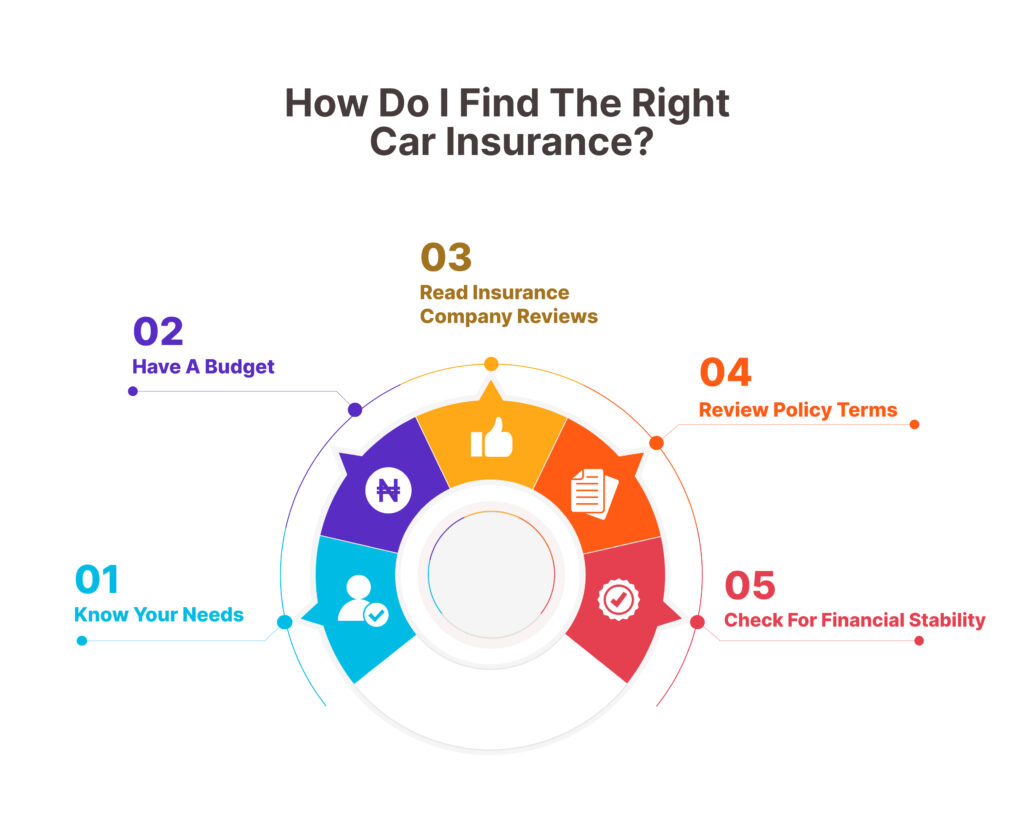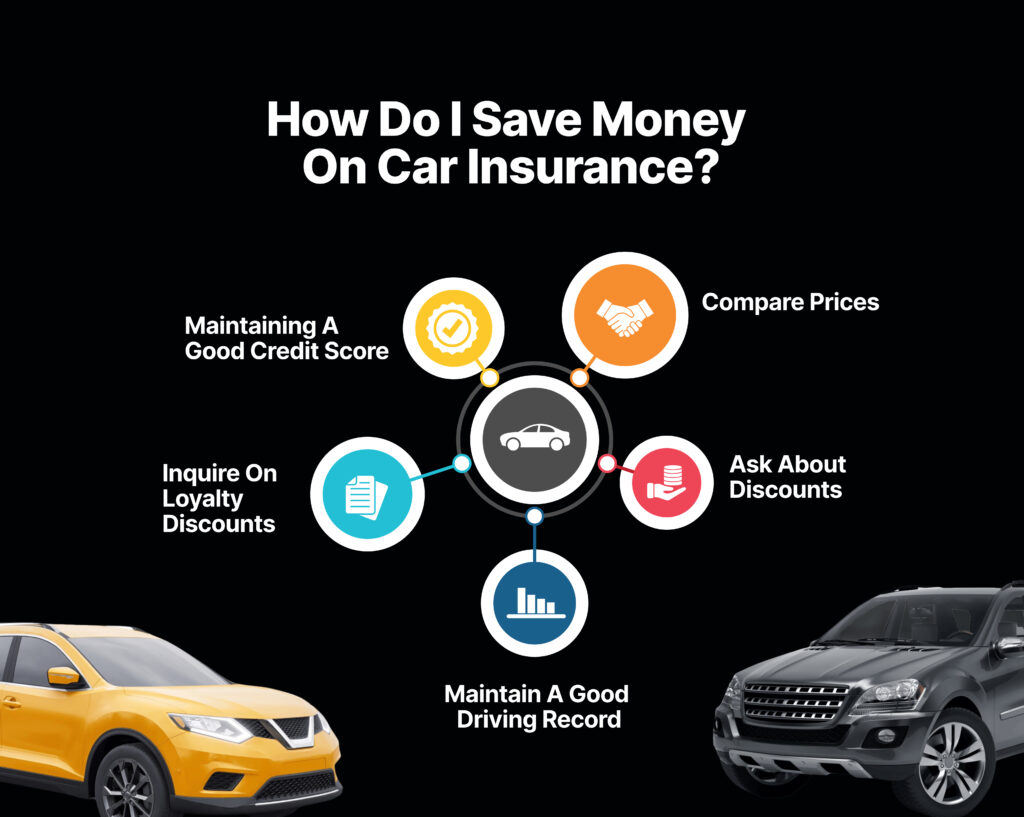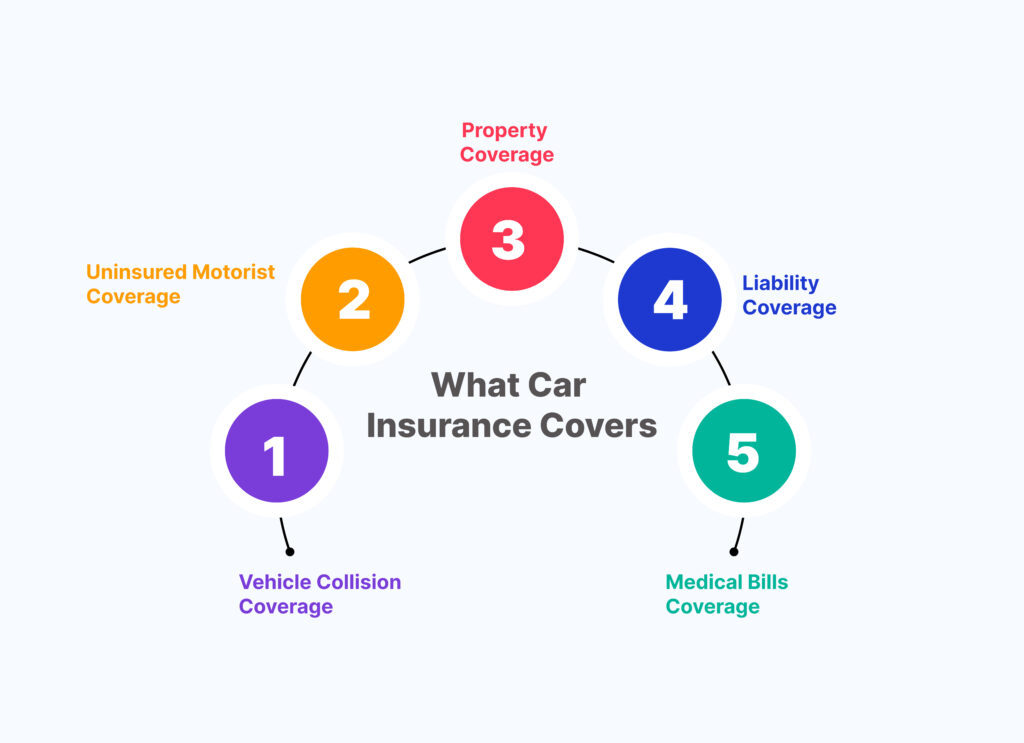Car Insurance
Financial security and peace of mind begin with understanding the need for car insurance. Many unexpected situations happen occasionally, and securing your car will save you from these situations. Car insurance is a legal requirement and a significant investment to safeguard your assets.
What is Car Insurance
Car insurance provides financial protection as a form of reassurance in incidents arising from vehicles, like car accidents, stolen vehicles or any damage sustained by your vehicle.
It is a contract between you as the car owner and an insurance company whereby the car owner pays a premium in exchange for coverage for specific costs associated with auto accidents instead of paying out of your pockets.
Car insurance offers coverage for the following:
- Uninsured Motorist Coverage: This protects you when you get injured in a car accident by an uninsured driver or in a hit-and-run situation.
- Property Coverage: This coverage covers other forms of car damage without collision, such as theft, vandalism or natural disaster.
- Liability Coverage: This provides coverage for bodily injury and property damage you may cause in an accident to others for which you are at fault.
Remember that the coverage’s protection depends on your state’s requirements. You should also consider the type of car you drive around. However, other additional coverage may not be required but will give you extra protection in cases of car damage or accidents. These include;
- Vehicle collision coverage to your vehicle or another driver’s vehicle as a result of a collision with an object or another vehicle.
- Medical bills Coverage: This covers medical expenses due to injuries sustained in an accident, irrespective of whose fault it is.
Other coverage protection depends on the minimum coverage requirements for your state.
Car Insurance Cost?
When purchasing car insurance, several costs and factors are considered. To get the total cost of your insurance, it includes different components that play a part. These components include;
Premium: This is the amount you must pay for your insurance coverage, which can be quarterly, monthly or annually. However, these premiums vary depending on certain factors;
- Age: The age of the insurance applicant determines your premium. If you are a young or inexperienced driver, you may have to pay a higher premium as you are perceived as a higher risk.
- Driving Record: If you have a clear driving record, with no accidents or traffic violations, then you do not have to worry about high premiums, but if it’s otherwise, like the history of accidents or violations, you may be liable to pay higher premiums.
- Driving History: The number of years you have been a licensed driver can also be considered. Experienced drivers are believed to practice safe driving compared to inexperienced drivers. And as an experienced driver, you can get a lower premium.
Other Components of Car Insurance Cost
- Deductibles: Deductibles are the amount you agreed with your insurance company to pay out whenever you claim before you are paid anything for the damages you claim. Having a higher deductible reduces your premium. But bear in mind that with a high deductible, you will have to pay more claim damages in cases of any incident. The lower the deductibles, the higher your premium and vice versa.
- Coverage Types and Limits: The type of coverage you choose and your limit will determine the premium you must pay. Apart from the required protection you get from the coverage, including optional coverage like medical coverage, roadside emergencies or comprehensive coverage could influence your overall premium.
- Credit History: Some insurance companies use your credit history to determine your premium. Individuals without a bad credit history can get a lower premium, while some get higher premiums.
- The Type of Vehicle: The model of your car, the age and safety measures could also influence your premium. Expensive cars often have a higher premium.
- Location: Where you live and park your car can also influence your insurance premium. Suppose you live in places notorious for theft, vandalism, or damages.
How Do I Find The Right Car Insurance?

To find the right car insurance, you must conduct a thorough evaluation to ensure whatever they offer you aligns with your auto insurance needs. To find the right auto insurance, here is what to look out for;
- Know your needs: Determine the type of insurance you need and the additional coverage you intend to include with the required coverage. This will help determine what and what to include in your auto insurance.
- Have a Budget: A budget will help you determine the amount you can afford for premiums and the payment plan of either monthly, quarterly, or annually with which you are comfortable. And keep in mind that having a higher deductible means a lower premium, but you need to pay more whenever you make a claim.
- Read Insurance Company reviews: For insurance companies, you intend to buy insurance with, be sure to read up on customers’ reviews and ratings for each of them. This can help you understand how they operate regarding customer service and the claim process.
- Review Policy Terms: Carefully read and understand the terms and conditions of the insurance policies you are considering. Look out for any clauses and limitations.
- Check for financial Stability: Research the financial stability of the insurance company you are considering signing up with. Ensure your insurance provider has enough stability to resolve claims and provide reliable services.
Gap Insurance: What is Gap Insurance?
Gap insurance is also known as Guaranteed Asset Protection Insurance. It is a type of insurance coverage that protects you from financial loss if your car is totalled or stolen. New cars are known to depreciate quickly.
The “Gap” insurance is the difference between the vehicle’s value and what you still owe on the vehicle if you are involved in an accident. That is the Actual Cash Value of your car and the amount you still owe on your loan and lease.
How Does Gap Insurance Work?
Depreciation: As soon as you buy a new car, the value depreciates. If your car gets totalled in an accident or stolen, your auto insurance will pay you the car’s cash value as of the incident.
Loan/Lease Balance: If you purchased a car through a loan or lease, the amount you owe on the loan could be more than the actual cash value of the car, especially at the beginning of ownership.
Gap Coverage: Gap insurance fills the gap between your vehicle’s (ACV) Actual Cash Value and the amount you still owe on your loan. They are protecting you from having to cover the remaining balance from your pocket.
Gap Insurance is essential for individuals who;
- Opted to lease a vehicle
- They placed a down payment on their car.
- financed a significant part of the car’s value.
However, Gap coverage is only an optional coverage that can be purchased with your car insurance through an insurance provider when buying or leasing the vehicle. The cost of gap insurance varies, but don’t worry; it is usually a one-time payment included in your auto insurance payments.
How Do I Save Money On Car Insurance?

There are several ways you can save money on insurance premiums to get cheaper premiums for your car insurance. To save on car insurance, some factors can help you save on your car insurance.
- Compare Prices: You don’t have to be fixated on a particular insurance provider, get quotes from different providers, compare the prices and see which one offers the best deal.
- Ask about discounts: Inquire about the discounts available. You can take advantage of several discounts, including a safe driver discount, a good student discount, and a discount for safety features on your phone.
- Maintain a good driving Record: Obeying the traffic regulations and avoiding accidents, collisions, or damages will not only keep you safe but will also allow you to qualify for lower insurance premiums.
- Inquire on Loyalty Discounts: Ask if the insurance company you are buying from or signed up with offers loyalty discounts to their long-term customers. However, if you find a better deal, feel free to switch to a company that offers a better deal.
- Maintaining a Good Credit Score: A good credit score can help you secure a discount. Some insurance companies use credit scores to determine your premium.
Who Does Auto Coverage Cover?

Auto insurance covers you or family members on the policy, whether while driving your car or another person’s car, with their permission. It also covers any other individual excluded from the policy but access your car with your permission.
But remember that personal auto insurance does not cover using your car for commercial use like deliveries for ride sharing like Bolt or Uber. You can also access supplementary products at an extra cost to extend coverage for individuals involved in ride-sharing services.
What Do I Need To Know To Get a Car Insurance Quote?
To get your car insurance quotes faster, ensure to have the following;
- A valid driver’s license
- Vehicle identification number
- A physical address where your vehicle is stored
How can I compare car insurance quotes?
- Determine your Auto Coverage Needs:
- Set Deductibles
